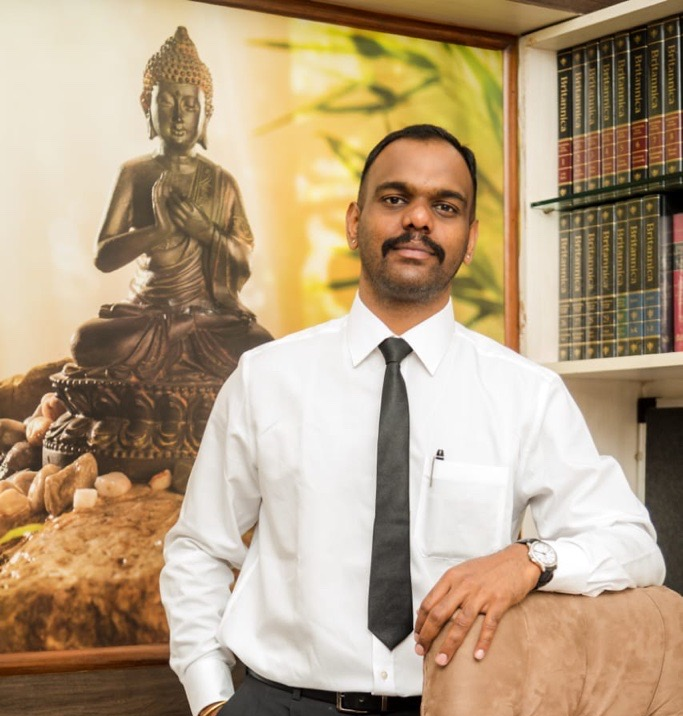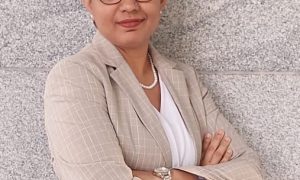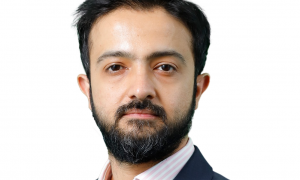This interview has been published by Namrata Singh and The SuperLawyer Team

Could you please walk us through your journey as to what inspired you to pursue a career in law?
Law has always been something which I have seen at close quarters coming from a business family. It has intrigued me and given me an insight into its importance and the eminent role it plays in society. Law is that facet of the society which keeps the citizens in check and gives society its balance. It also is the very basis for the society to get justice and have fair practice in everyday life. This set me on a path at an early age to pursue a career in law.
What was the idea behind founding Reddy & Reddy Law Firm?
Pursuing an LL.M. immediately after my LL.B. was a well-planned strategy to equip myself with a comprehensive understanding of the international legal landscape. Also, I have had an entrepreneurial flair from early days, and again business, negotiations, contracts, acquisitions is something that I have been fond of since early days. I hail from Pune, an Industrial city which was just beginning to blossom around early to mid 2000’s, and law firms were absent and individual practice was the order of the day, I saw this as an opportunity and so founding a Law firm was a natural progression.
You’ve dedicated a significant part of your career to dispute resolution. What is it about this area of law that captivates you?
During my law studies, I was introduced to Dispute Resolution practice.To develop expertise in this area, I actively participated in relevant activities and eventually pursued my first specialised course in Civil/Commercial Mediation from UK, becoming an accredited mediator in 2014, which developed a deeper interest in the subject area leading to opportunity in providing set services in this domain, furthermore in the later years I undertook other various International courses and affiliations leading to my latest course in February 2024 on Program on egotiations from Harvard Law School. The area of dispute resolution has become the mainstream practice as it has been globally accepted at all levels of business and governments. It has been found to be a much holistic and easier medium for getting resolutions and so is the order of the day today.
How do you stay motivated in the face of challenging cases?
I have a natural aptitude for conflict avoidance and dispute resolution. In our profession listening is a key strength which I have and I use it well, so in every case the key motivation is listening to both parties well, which then helps me successfully resolve disputes.
The Indian Institute of Alternate Dispute Resolution is a significant achievement. Can you share the story behind its inception and your vision for its impact on the legal profession in India?
It was at my course at Oxford in the UK where I saw the merits of Mediation practice. It was also during the same time some of my clients inquired about commercial mediators, I recognised an opportunity and decided to set up IIADR as a pivotal organisation which would lead in the area of ADR with members, knowledge center, courses and training’s which would equip the new legal advocates to pursue ADR as a career through this platform.
With your extensive experience in mediation and arbitration, what advice would you give to clients or individuals who are torn between choosing litigation and alternative dispute resolution methods?
There is never a black and white scenario in the legal space and there are various many factors which decide the course of legality. However, until now the only option has been litigation which at times is long, costly and arduous. Mediation and Arbitration come in as a very strong viable alternative solution to resolve conflicts amicably. It provides the client a chance to get a faster resolution, which can be cost effective too.
Given your vast experience and success, what advice would you offer to young professionals spiring to make their mark in the legal field ?
To young professionals aspiring to establish their own law firms, my message would be: Never give up. Embrace failures as learning opportunities, for they are crucial to personal growth and development. In my experience, there are four stages in the journey of starting out on your own in the legal arena / mediation :
∙ The first stage involves having no work and no money.
∙ The second stage brings work but no money.
∙ The third stage sees good work and good money.
∙ Finally, the fourth stage is characterised by less work but consistent income.
While this may not be the exact path for everyone, it represents the holistic picture. The key is to remain confident and patient to take the leap when the opportunity arises. Success will follow with hard work and perseverance.
Moving away from your professional life, do you have any hobbies or interests that you’re passionate about outside of work?
Engaging in fitness activities, pursuing hobbies, or participating in sports can provide much-needed mental refreshment and balance amidst the rigours of legal practice. I am an avid fitness freak and train regularly, I am a trekker and do go out on weekends for long treks and do adventurous sports.
With technological advancements and the increasing acceptance of online dispute resolution (ODR), where do you see the future of dispute resolution and law practice heading in the next decade?
Technology acceptance in mainstream society is at its peak and technology today has touched every human interaction throughout a day of 24 hours. The Indian government themselves have introduced and have made digital payments a roaring success all throughout the country. Similarly, in the legal arena, government has launched a big initiative in the space of ODR and is taking active initiatives in this space.
In fact, it can be said that technology is the mediator in our interactions and influence our actions in many ways, such as mediation of experience, influence on behavior and ethical considerations, Virtual Mediation will take central place. AI and Mediation is an emerging trend in technological advancements.
I see a huge demand in this space of tech application in the legal world and we at Reddy and Reddy Law Firm are at the forefront of this where we are designing our own tech platforms to decimate knowledge, provide platform for interaction and help the society to reach out to us seamlessly.
More important role of technology will be in the area of education and training skills for the next generation. So yes, I am very vocal and a strong pursuer of technology adaptation in the legal profession.
Your Master of Laws (LLM) from Cardiff University in the UK provided you with international exposure. How do you think this experience differed from a purely domestic legal education, and what exceptional insights or perspectives do you believe students in India could gain from similar international exposure?
International learning gives one an exposure to different cultures, mindset’s and systems. LL.M. in International Commercial Law at Cardiff University comprised a diverse range of subjects, including international banking, competition laws, international corporate governance, and the World Trade Organization. These topics were distinctly different from the regular curriculum taught in India, and the flexibility to choose optional modules allowed me to tailor the program to my interests.The education system in the UK is more interactive and knowledge driven, that is one of the primary reasons for total development of a student who is keen to pursue his career. Another important aspect that I learnt in the UK was attending the seminars and conferences that the University hosted which gave me an exposure to meet industry stalwarts and subject matter experts which helped me with holistic knowledge.
You’ve also been involved in philanthropic efforts, notably with your NGO. Could you share with us the purpose of this organization and the inspiration behind its inception? What societal issues or causes does it seek to address, and how do you envision making a difference through this initiative?
Raksha Seva Suraksha is the name of my NGO, it was formed in 2010. Right as I was finding my foothold in my career. My parents come from a very humble background and at home i had always seen my parents make that extra space to help people, this inculcated in me a very strong purpose of societal ownership where my parents took it upon themselves to ensure that help has to be extended whenever needed to the needy.
Hence the day I passed out as a law graduate and decided to start my own law firm, the NGO was a natural progression. My NGO, as per its name Raksha Seva Suraksha, needs Raksha (Protection), Seva (Service), Suraksha ( Complete Protection in all terms). We provide holistic care to the needy not restricted to legal aid, but even in the space of health, education and family matters.
This is a very small but very focused entity of our organisation and luckily every member of my organisation feels and participates here Pro Bono, and together we resolve as many conflicts as we can.
Leading a team of 18 advocates requires effective communication and leadership skills. How do you ensure that everyone is on the same page and working towards common goals? Could you share some guidance on fostering collaboration and cohesion within a legal team, particularly in navigating complex cases or disputes?
Regular structured communication and key defined processes are the cornerstones of having successful team efforts, especially when one is working with large teams on complex matters, as in the corporate world, at RRLF we breakdown the case into its relevant sectors and create team leads, I am personally a big fan of KPI’s and at the very outset we together as a team set our KPI’s(Key Performance Indicators) for each sub team and how we get there. Over the last 13 years of legal practice and leading small and big teams we have honed our processes to capture all the details. This then helps the team in defining and reaching their KPI’s which finally give the complete team its outcome which is the motto of the Law Firm a “HAPPY CLIENT’.
Get in touch with Adv. Sudhir Reddy–
























